You’re staring at spreadsheets, again. It’s late, the numbers don’t add up, and tax season’s creeping closer. You tell yourself it’s fine—you’ll figure it out. But deep down, you’re tired of guessing, Googling, and hoping you didn’t miss something important.
Stop and ask yourself the real question: Do I need a bookkeeper? If your business is growing but your books are a mess, you already know the answer. I’ve been there—juggling everything, trying to be the CEO and the finance department. It’s not sustainable. Let’s talk about what happens when you stop doing it all.
What Is a Bookkeeper?
Let’s clear something up right out of the gate—a bookkeeper isn’t just someone who punches numbers into a spreadsheet. They’re the person making sure your business’s financial engine isn’t misfiring.
A bookkeeper records all the day-to-day transactions in your business. Money in, money out. They track sales, expenses, invoices, payroll, and the stuff that keeps your business running behind the scenes.
And while they’re not doing your taxes or making high-level financial forecasts, they’re giving you clean, accurate numbers so your accountant (or you) can make smart decisions without guessing.
What Does a Bookkeeper Do?
Think of your bookkeeper as the person who keeps your financial house in order, without the stress and late nights. Things like recording every sale, every bill, and every payment. They reconcile your bank accounts, categorize your expenses, and keep your books up to date so nothing falls through the cracks.
They also prep reports that show where your money’s going, flag weird transactions, and give you the kind of clarity QuickBooks promised but never actually delivered when you went DIY.
Types of Bookkeepers

Not all bookkeepers work the same way. Depending on your business, one type might suit you better than the others.
-
Freelance Bookkeeper
Usually works solo and takes on a handful of clients. They’re often affordable, flexible, and great if you prefer one-on-one communication.
-
Virtual Bookkeeper
Typically works remotely, often using cloud-based accounting software. This setup gives you easy access to your financials from anywhere—no office visits needed.
-
Agency Bookkeeper
Part of a larger firm with multiple bookkeepers on staff. You’ll likely get standardized processes, backup support, and a more structured setup.
-
Niche-Specific Bookkeeper
Specializes in your industry—e-commerce, construction, or restaurants. They know your common pitfalls and can anticipate what’s coming next.
-
Outsourced Bookkeeper
It could be a hybrid of several types above, often hired through a third party. They usually offer full-service packages that handle everything from data entry to reporting.
Why You Need a Bookkeeper for Your Business
If you’re spending hours buried in receipts or second-guessing your numbers, you already know something’s off.
Running a business means making a hundred decisions a day. You can’t afford to guess when it comes to money. A bookkeeper gives you real data, not hunches, so that you can move with confidence.
And let’s be honest: doing your own books isn’t saving you money. It’s costing you time, focus, and probably accuracy. A bookkeeper helps you clean up the mess, get back control, and breathe a little easier.
Signs That Your Small Business Needs a Bookkeeper

You don’t have to wait for a disaster to realize you need help. Most business owners see the warning signs early—they just don’t always know what to call them.
- You’re always behind on invoices or reconciling accounts. Things keep piling up, and you’re constantly playing catch-up.
- You’re guessing when it comes to your numbers. You don’t know what’s deductible, what your profit margin is, or if your cash flow is healthy.
- Tax time feels like a panic attack waiting to happen. You’re scrambling to pull reports, track expenses, or figure out what went where.
- You’re spending late nights on your books. That’s time you could be using to grow your business, talk to customers, or just rest.
- You avoid looking at your finances altogether. If you’re dodging your numbers, it’s probably because they don’t make sense, and that’s a red flag.
Benefits of Hiring a Bookkeeper
It’s probably becoming clearer that you need a bookkeeper for your business, but in case you need a bit more convincing, check out these benefits of hiring a bookkeeper:
-
You get clean, accurate numbers without second-guessing them.
No more wondering if you missed a transaction or categorized something wrong. A bookkeeper makes sure everything lines up every time.
-
You’ll finally stop spending your weekends buried in spreadsheets.
Time is money, and your time is better spent on clients, growth, and actually enjoying your business.
-
You won’t have to stress about tax season or compliance anymore.
A good bookkeeper keeps your records audit-ready and helps you avoid costly mistakes, missed deadlines, and penalty letters.
-
You’ll make better decisions because you’ll finally know your numbers.
Real-time reports show you where your money is going—and help you figure out what to do next with confidence.
-
You’ll actually save money in the long run.
Hiring a bookkeeper sounds like an expense, but it cuts down on mistakes, missed deductions, and wasted hours.
-
You’ll get custom reports that make sense.
No more clicking around in QuickBooks trying to guess what a balance sheet means. Your bookkeeper hands you reports that speak your language.
-
You can finally focus on what you’re good at, and it’s not bookkeeping.
Your zone of genius probably isn’t reconciling accounts. Let someone else handle the numbers, so you can focus on running your business.
What To Look For in a Bookkeeper

Handing over your books is a big deal. You’re not just looking for someone who knows numbers—you need someone you can trust with the guts of your business. Here’s what I always tell business owners to look for:
- You want someone you actually trust. They’ll have full access to your financial life—honesty and integrity matter.
- They know their stuff. A good bookkeeper stays up-to-date on tax rules, industry changes, and what’s relevant for your business.
- Organization is their strength. Messy systems and missed deadlines? Not acceptable. You need someone who runs a tight ship.
- Details matter—they think like a proofreader. One wrong number can throw off everything. Precision is the name of the game.
- They care about your business, not just your books. Look for someone who listens, asks questions, and really wants to understand what you’re building.
- They’re proactive, not reactive. The best bookkeepers catch issues before they become problems.
- Tech skills are a must. If they’re fumbling through software or stuck in spreadsheets from 2003, keep looking.
- They speak your language. You shouldn’t feel lost in accountant-speak. Clear communication is key.
- Problem-solving is part of their toolkit. Things happen. When they do, you want someone who knows how to fix them fast.
- They understand your industry. Every business has quirks. Someone who’s seen your kind of numbers before will catch things others miss.
- They play it straight. Transparency, ethics, and confidentiality aren’t negotiable.
- And finally, they ask smart questions. If they’re not clarifying details, they’re probably making assumptions. And that never ends well.
Why Do I Need a Bookkeeper: Frequently Asked Questions
Is it worth getting a bookkeeper?
Yes, getting a bookkeeper is absolutely worth it. A professional bookkeeping service gives you accurate daily financials, tracks every expense, and delivers detailed reports that help you make smarter financial decisions. Instead of scrambling through bank statements and receipts, you’ll have clean records and valuable insights at your fingertips.
At what point do I need a bookkeeper?
You need a bookkeeper when managing money starts taking time away from running your business. If your cash flow statement is a mystery, your bank statements are piling up, or tax time is a guessing game, it’s time to bring in an experienced bookkeeper who can take the stress off your plate.
What is the primary purpose of a bookkeeper?
The primary purpose of a bookkeeper is to maintain organized, up-to-date financial records, including managing daily transactions, keeping your cash flow statement current, reconciling bank statements, and preparing reports that support clear financial decision-making.
Work With Bookkeeping Match Up To Find Your Perfect Bookkeeper
Ready to connect with a real, vetted bookkeeper who understands your industry, your pace, and your priorities? Stop stressing over your books and book a free call. Let’s match you with the right bookkeeper for your business.




